Text by Bethany Shepler, SPP Green Track Program Coordinator
Note: please be aware that individuals featured in this story and in these images have victims who are concerned about re-victimization; any sharing or promoting should keep that risk in mind.

This past June Dr. Tyrus Smith signed my thesis. He was my thesis advisor and his signature validated all of my hard work over the last year-and-a-half. Suffice it to say, I was ecstatic! My thesis process was more difficult than I imagined it would be, took longer than I expected, and I am truly proud of the end product.

Before we move on, I could not have gotten to that moment of completion without the support of Evergreen Master of Environmental Studies faculty (Dr. Tyrus Smith, Dr. Kevin Francis, and Dr. Shawn Hazboun), my friends and family, my classmates, the people who participated in my study, the loggers that answered all of my questions, and the constant support from incarcerated and staff advisors at Stafford Creek Corrections Center (SCCC). Thank you all!!

Thesis advisors in prison
From the very beginning of my thesis process, I knew I wanted to work with incarcerated individuals and SPP supported me in making this possible. So, I invited environmental studies experts housed at SCCC to work with me as advisors. I worked with the Roots of Success instructors and the Roots liaison at the facility, Kelly Peterson. A photo of me and the advisors is shown below.

Over the past two years, we met on multiple occasions. To develop a deeper understanding of the subject matter, the incarcerated advisors studied the articles and references I provided; they read peer-reviewed academic articles, research planning guides, newspaper articles, and other publications. They offered feedback and ideas on several aspects of the research including topic selection, philosophical framework, research design, study population, survey design, and presentation of the topic.
Seminar
This past February, Kelly Peterson helped me set up a seminar with a larger group, and included Dr. Smith. We asked all participants to read four pieces beforehand, to prepare for the discussion. Two were data-heavy, very dense, dry academic articles describing the theoretical framework I used for my thesis. Another was a piece President Roosevelt wrote after visiting the Pacific Northwest, in which he proposed a forest plan. And the last was an academic article about common predictors of environmental attitudes.

I remember being nervous that no one would want to talk and I could not have been more wrong! They had all clearly done deep dives into the reading and made interesting connections I had missed in my own review of the literature. Everyone had thoughtful input and suggestions for things to explore and add to my thesis. The seminar was lively and thoughtful and there was never a quiet moment.
What is my thesis about?
My completed thesis is titled: A critique of the New Ecological Paradigm: Stewardship and a case study of the Pacific Northwest logging industry. It explores the concept of stewardship and how it fits into the New Ecological Paradigm. The study population was people actively working in the logging industry in the Pacific Northwest.

This research project was an exploratory study designed to document the ecological attitudes of loggers in the Pacific Northwest. As an exploratory study, I sought to contribute to a gap in the empirical literature: how loggers view the environment. I gathered their responses to the New Ecological Paradigm questionnaire, a measure of their ecological attitudes. Also, I collected information about each participant’s experiences in nature and their socioeconomic and demographic backgrounds.
Hanging out with loggers
Over the summer Pulley Corporation, an FSC®-Certified logging company agreed to let me shadow them for a day. This was an incredible opportunity for me and I am so grateful to everyone for answering all of my questions. Being able to speak with loggers who work in the field expanded my background knowledge on logging in the Pacific Northwest, and helped inform the survey I used to gather data. From these interactions, and many others, I noticed two attributes shared by all: a stewardship mindset and pro-ecological attitudes.
Regardless of their obvious pro-ecological attitudes, the sample population scored lower on the New Environmental Paradigm than most Washington State residents. This suggested to me that the New Environmental Paradigm measures attitudes using a socially-exclusionary lens.

So, what’s in a thesis? Well, in my case, a thesis is a collaboration of very diverse groups of people, all environmentally inspired and dedicated, and all willing to support me as a graduate student. I am lucky to have all their brilliance and input in those pages.





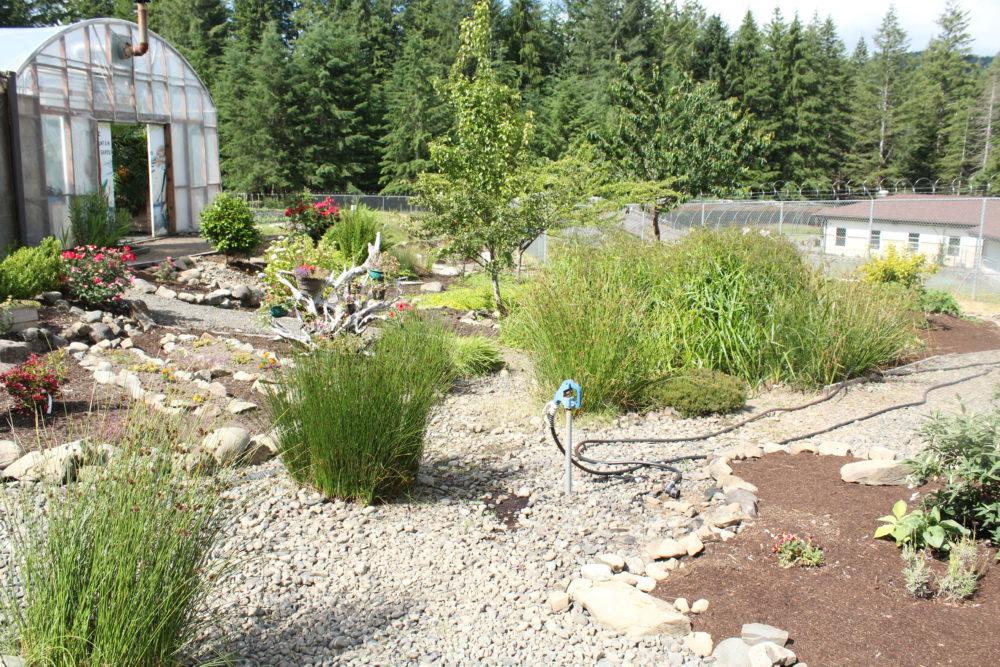

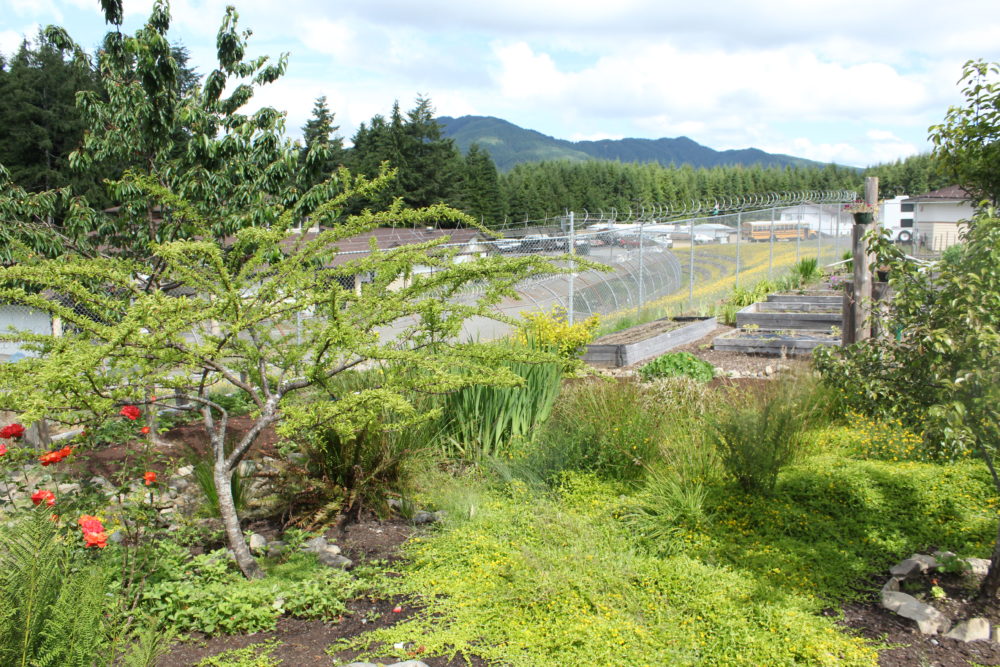



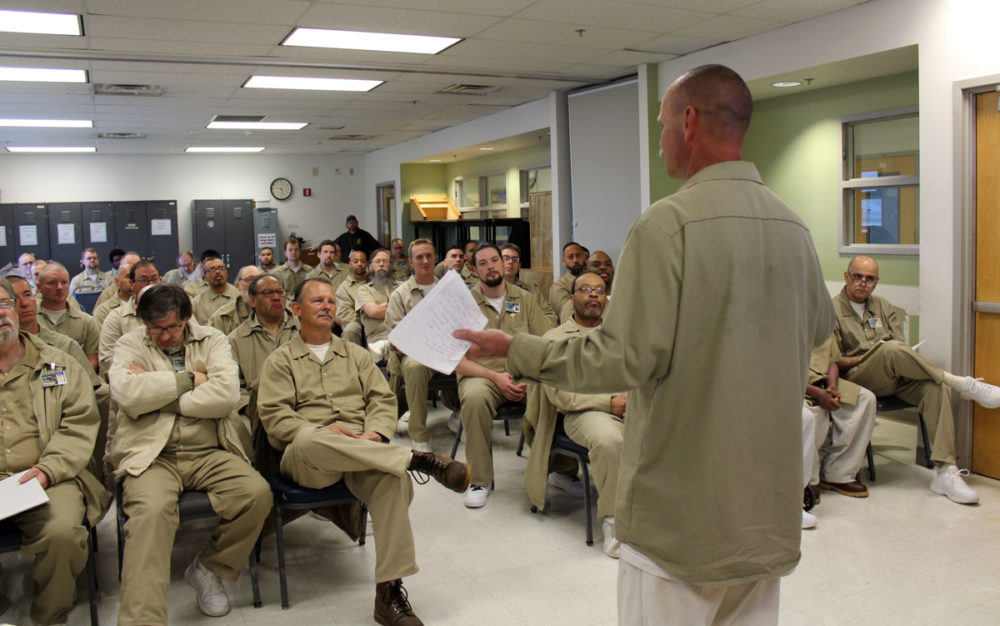
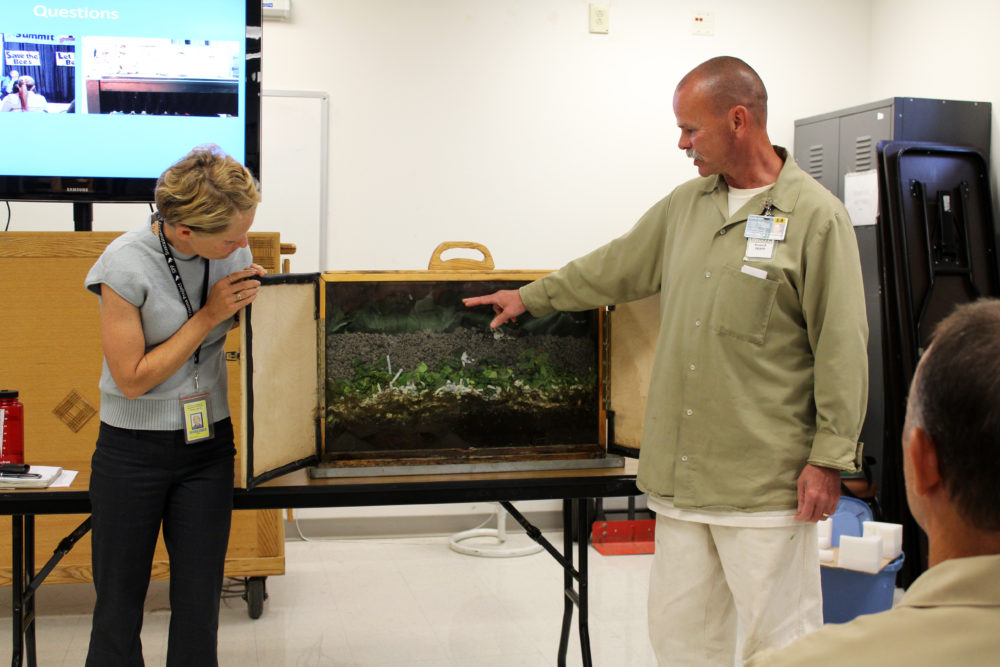
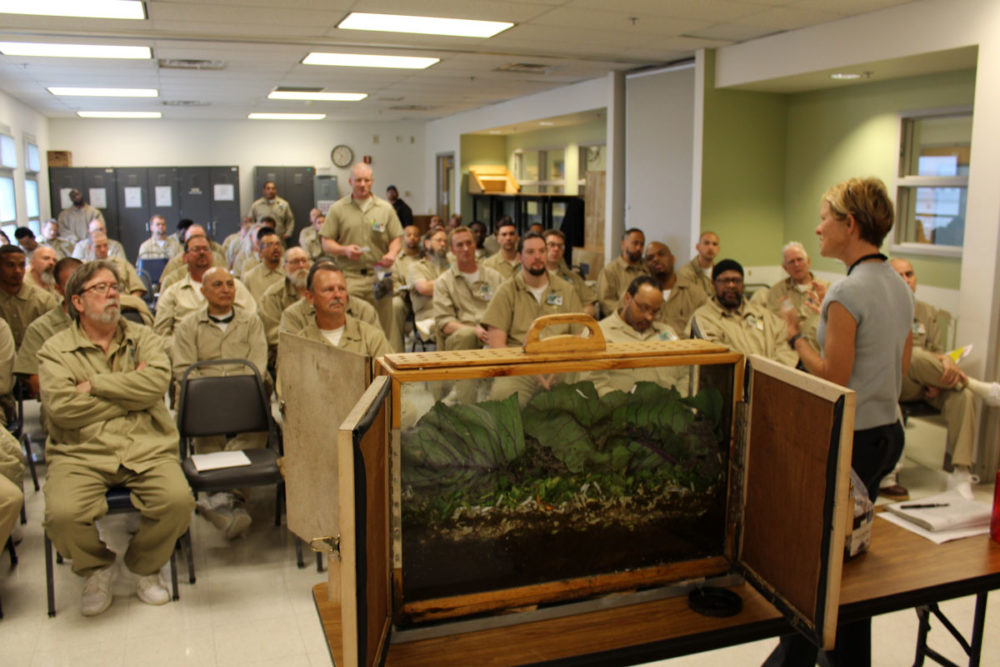
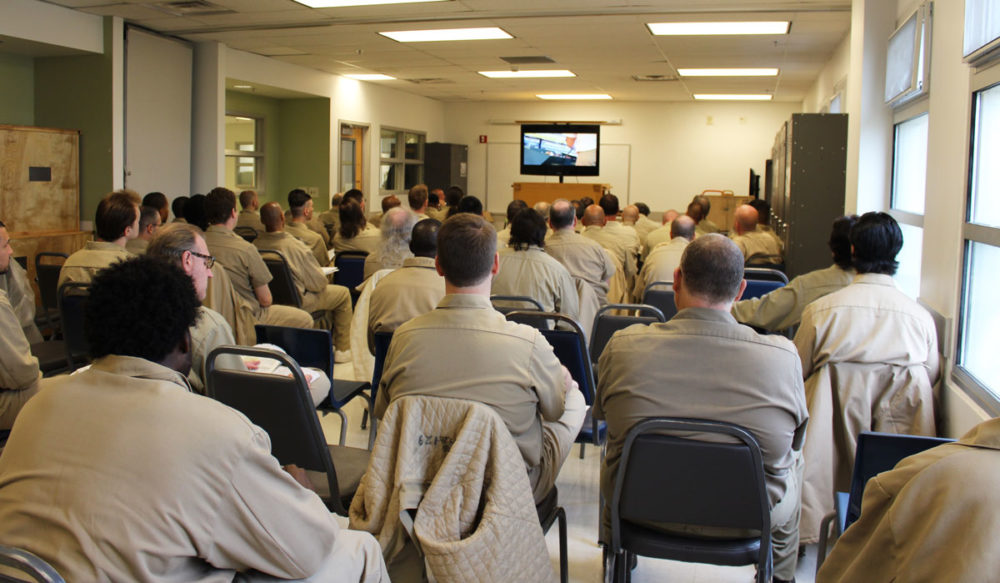











 The students at Stafford Creek express interest in a huge variety of sustainability and environmental topics. New topic requests I heard were economic and political aspects of climate change—I agree that there is much to learn and consider in that arena! A few students spoke of their frustrations of not having their requests filled, or that they have missed the presentation when their request was met. Again, this points to the desire to increase program access and scope.
The students at Stafford Creek express interest in a huge variety of sustainability and environmental topics. New topic requests I heard were economic and political aspects of climate change—I agree that there is much to learn and consider in that arena! A few students spoke of their frustrations of not having their requests filled, or that they have missed the presentation when their request was met. Again, this points to the desire to increase program access and scope.